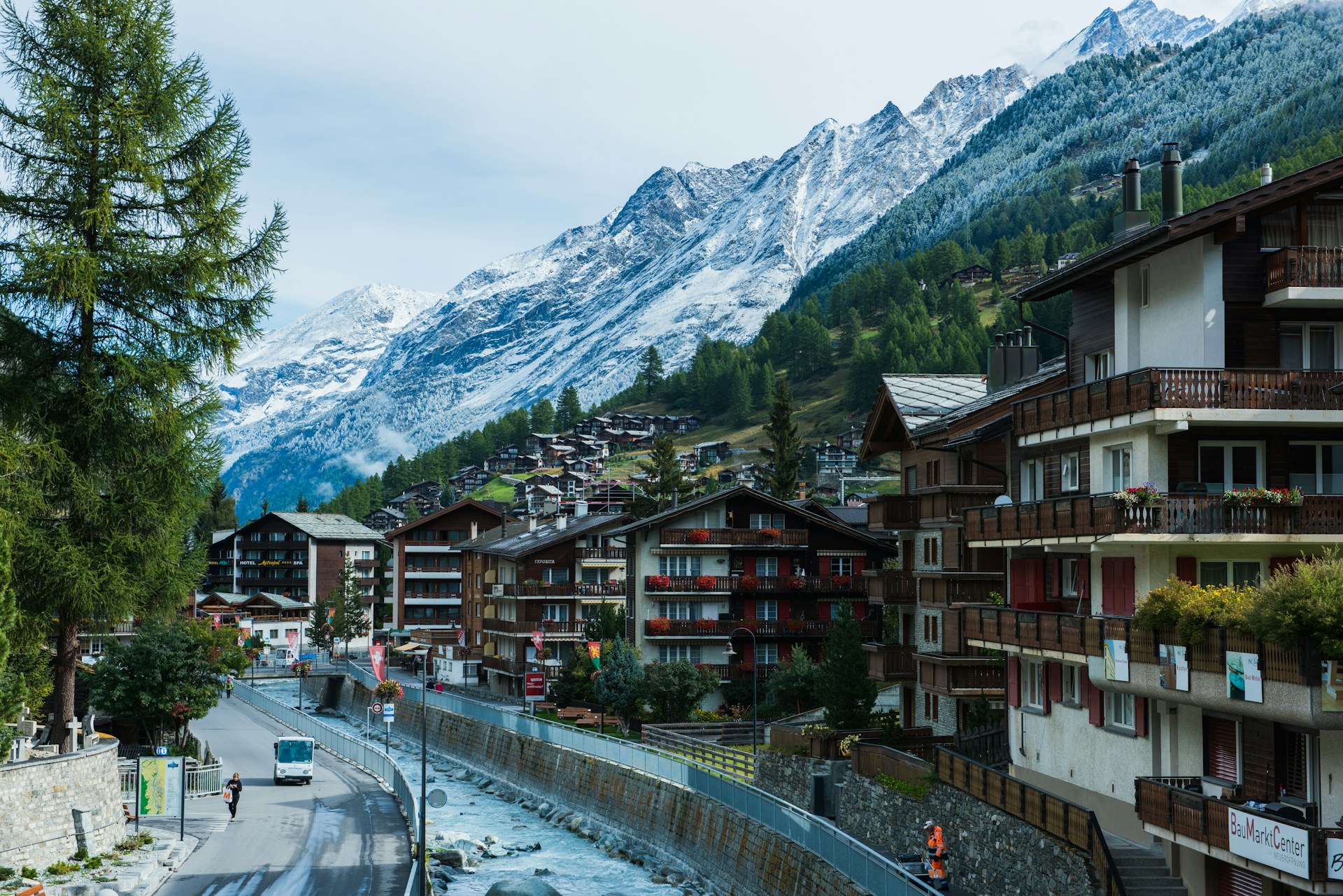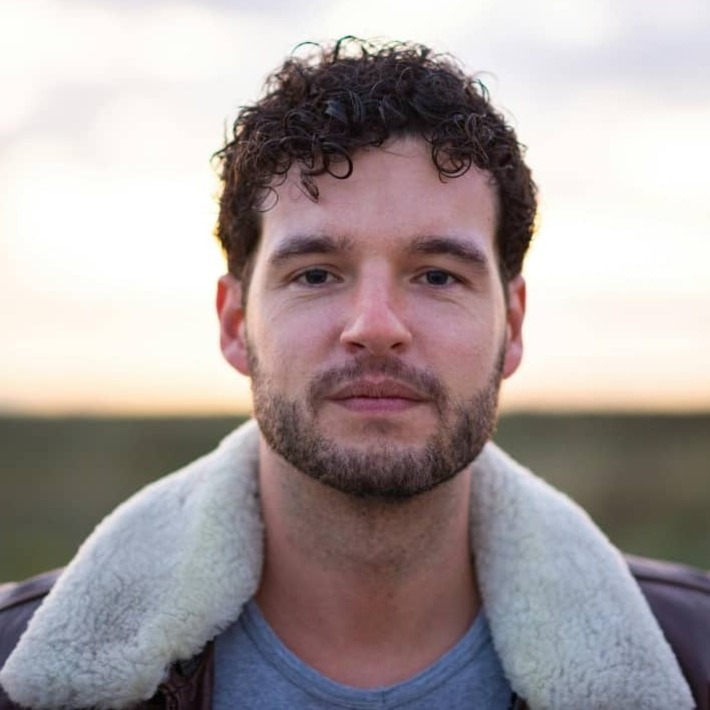50 Fun Facts About Switzerland That Will Surprise You!
Uncover the fascinating secrets of Switzerland with these 50 fun facts. Learn about its geography, culture, history, and more. Perfect for travelers, students, and curious minds!
Author:Sophia HarperReviewer:Liam JonesOct 05, 202453.8K Shares854.6K Views

Switzerland, known for its breathtaking landscapes, efficient public transport, and high quality of life, is a country that fascinates many. Beyond its iconic mountains and delicious chocolates, Switzerland holds a treasure trove of interesting and quirky facts.
Whether you’re planning a trip, researching for a project, or just curious about this European gem, these 50 facts will give you a deeper appreciation of Switzerland.
Geographic Marvels
1. The Land Of The Alps
Switzerland is home to 208 mountains, each towering over 3,000 meters. The Alpscover about 60% of the country, offering a paradise for hikers, climbers, and winter sports enthusiasts. National Geographic highlights that Switzerland’s natural beautyis enhanced by pristine Alpine lakes and glaciers.
2. Lake Geneva’s Grandeur
One of the largest freshwater lakes in Europe, Lake Genevastraddles the border between Switzerland and France. It's a top destination for water sports and picturesque boat cruises, with breathtaking views of the surrounding mountains.
3. The Matterhorn: A Swiss Icon
The Matterhorn, located in the picturesque town of Zermatt, is one of the world’s most recognizable mountains. With its distinct pyramid shape and towering height of 4,478 meters, it has become a symbol of Swiss tourism. Visitors can explore Zermatt’s hiking trails or take the Gornergrat Railway to get closer to this majestic peak. For more details on how to explore the Matterhorn, check out Zermatt Tourism.
4. Swiss Plateaus
The Swiss Plateau, between the Jura Mountains and the Swiss Alps, is the country's most populated region, featuring rolling hills, fertile valleys, and a thriving agricultural landscape.
5. Glacial Lakes
Switzerland is home to over 1,500 lakes, many formed by glaciers. Lake Lucerneand Lake Zurichare two of the most famous, offering scenic views, boating, and walking trails that attract tourists year-round.
See Also - Fun Facts About Venezuela
Cultural Riches
6. A Multilingual Nation
Switzerland has four official languages: German, French, Italian, and Romansh. This linguistic diversity reflects the country’s rich cultural heritage and regional distinctions.
7. Neutrality Since 1815
Switzerland is internationally known for its neutrality, which dates back to 1815. The country has remained uninvolved in military conflicts and is home to numerous international organizations, including the United Nationsand the Red Cross.
8. Swiss Watches: Precision And Prestige
Switzerland is synonymous with luxury watches, with brands like Rolex, Omega, and Patek Philippe setting global standards for precision and craftsmanship.
These timepieces are not just accessories but symbols of status and innovation, made using the finest materials and cutting-edge technology. Watch enthusiasts can tour the famous watchmaking towns of Geneva and Biel/Bienne to see where the magic happens. For a deeper dive into the world of Swiss watches, visit Swiss Watches.
9. Direct Democracy
Switzerland practices direct democracy, where citizens can propose changes to laws and vote on key issues via referendums. This system allows the Swiss people a direct say in government decisions.
10. Cheese Fondue: A Tasty Tradition
Switzerland’s love for cheese fondue is legendary. This traditional dish, made by melting cheese with white wine, is often enjoyed in the colder months. It’s a communal meal where friends and family dip bread into the warm, gooey cheese.
See Also - Fun Facts About Vietnam
Historical Highlights
11. Oldest Human Settlements
Switzerland’s history is deeply rooted, with evidence of human settlements dating back to the Paleolithic era, over 450,000 years ago. Excavations across the country have unearthed tools and remnants of ancient cultures.
12. Swiss Confederation
Formed in 1291, the Swiss Confederationis one of the world's oldest surviving republics. It began as a defense alliance between three cantons and has grown into the modern state we know today.
13. UNESCO World Heritage Sites
Switzerland is home to 12 UNESCO World Heritage Sites, including the Old City of Bern, the Lavaux Vineyards, and the Rhaetian Railway. These landmarks represent the country’s rich history and natural beauty.
14. Birthplace Of The Red Cross
The International Red Crosswas founded in Geneva in 1863. Today, it continues to play a vital role in global humanitarian efforts.
15. Women’s Suffrage
Swiss women gained the right to vote at the federal level in 1971, relatively late compared to other Western nations. Despite the delay, Switzerland now ensures gender equality in politics and society.
Economic Powerhouse
16. A Global Financial Hub
Switzerland's banking sector is world-renowned for its discretion and efficiency. While banking secrecy lawswere a key feature, recent reforms have been introduced to combat tax evasion.
17. High GDP And Prosperity
Switzerland consistently ranks among the highest in terms of GDP per capita, reflecting the strength of its economy and the high standard of living enjoyed by its citizens.
18. Innovation Leader
Switzerland leads the world in innovation, frequently topping the Global Innovation Index. Companies such as Novartisand Rochein pharmaceuticals, as well as Nestléin consumer goods, are pioneers in their fields.
19. Low Unemployment And High Wages
Switzerland boasts one of the lowest unemployment rates in the world, along with some of the highest wages. This reflects the country’s stable economy and its focus on worker welfare.
20. High Wages
Swiss workers enjoy some of the highest wages globally, with a high minimum wage and generous benefits.
Quirky Facts
21. Hedgehog Highways
Switzerland has implemented "hedgehog highways" to help these small animals safely cross roads and navigate urban areas.
22. Chocolate Consumption
The Swiss are among the world’s top chocolate consumers, with an average of about 10 kg per person per year. Swiss chocolate brands like Lindt and Toblerone are internationally renowned.
23. Cows With Bells
Cows in Switzerland often wear large bells, which help farmers locate them in mountainous terrain. The bells also have cultural significance and are often decorated.
24. The Longest Staircase
Switzerland is home to the world’s longest staircase, the Niesenbahn funicular, which has 11,674 steps running alongside it.
25. Swiss Army Knife
The Swiss Army Knife, known for its versatility and multifunctionality, was invented in Switzerland. It’s a symbol of Swiss ingenuity.
Nature And Wildlife
26. Diverse Flora And Fauna
Despite its small size, Switzerland boasts a diverse range of flora and fauna, from alpine plants to forest wildlife.
27. National Parks
The Swiss National Park, established in 1914, is one of the oldest national parks in Europe. It offers a protected area for wildlife and a haven for nature lovers.
28. Clean Air And Water
Switzerland is known for its clean air and pristine water. The country has strict environmental regulations that help maintain its natural beauty.
29. Alpine Flowers
Switzerland’s Alps are home to a variety of unique alpine flowers, such as edelweiss, which is a symbol of the country.
30. Wildlife Corridors
To protect wildlife, Switzerland has established wildlife corridors to facilitate safe animal movement across highways and human settlements.
Swiss Innovation And Technology
31. CERN And The Large Hadron Collider
CERN, the European Organization for Nuclear Research, is located in Switzerland. It is home to the Large Hadron Collider, the world’s largest and most powerful particle accelerator.
32. Swiss Solar Plane
The Solar Impulse, a Swiss long-range experimental solar-powered aircraft project, demonstrated the possibilities of renewable energy by flying around the world without fuel.
33. Pioneering Pharmaceuticals
Switzerland is a global leader in pharmaceuticals, with companies like Novartis and Roche leading the way in medical research and innovation.
34. ETH Zurich
ETH Zurich is one of the world’s leading universities for science and technology. Alumni include Albert Einstein and other notable scientists.
35. The Doodle
The concept of the Doodle, an informal meeting scheduler, was developed by a Swiss engineer. It’s now widely used for organizing meetings and events.
Swiss Cuisine
36. Rösti
Rösti is a traditional Swiss dish made from grated potatoes, often served as a side dish. It's crispy, delicious, and a staple in Swiss cuisine.
37. Swiss Chocolate
Switzerland is world-famous for its chocolate. Brands like Lindt, Toblerone, and Nestlé are known for their high-quality and delicious products.
38. Raclette
Raclette is both a type of cheese and a dish in Switzerland. The cheese is melted and scraped over boiled potatoes, pickles, and onions, making for a hearty and communal meal.
39. Zürcher Geschnetzeltes
This dish consists of sliced veal with creamy white wine and mushroom sauce, typically served with Rösti. It’s a classic dish from Zurich.
40. Birchermüesli
Invented by Swiss physician Maximilian Bircher-Brenner, Birchermüesli is a healthy breakfast dish made from oats, yogurt, grated apples, and nuts.
Sports And Recreation
41. Swiss Skiing Tradition
Switzerland is a top destination for skiing and snowboarding, with famous resorts like Zermatt, St. Moritz, and Verbier attracting enthusiasts from around the world.
42. Ice Hockey Passion
Ice hockey is a popular sport in Switzerland, with the National League (NL) being one of the top professional leagues in Europe.
43. Hiking And Mountaineering
With its extensive network of trails, Switzerland is a paradise for hikers and mountaineers. The Swiss Alpine Club, founded in 1863, is one of the oldest mountaineering clubs in the world.
44. Swiss Football
Switzerland has a strong football tradition, with its national team regularly competing in international tournaments like the FIFA World Cup and UEFA European Championship.
45. Yodeling
Yodeling, a form of singing that involves rapid changes in pitch, is a traditional Swiss pastime, especially in rural and mountainous regions.
Swiss Festivals And Events
46. Fête De L'Escalade
This annual festival in Geneva celebrates the city's victory over the Duke of Savoy's troops in 1602. Participants dress in period costumes and enjoy traditional foods.
47. Montreux Jazz Festival
The Montreux Jazz Festival is one of the world's most famous music festivals, attracting top artists from around the globe. It takes place every July on the shores of Lake Geneva.
48. Basel Fasnacht
Basel's Fasnacht is the largest carnival in Switzerland, featuring colorful parades, elaborate costumes, and lively celebrations that last for three days.
49. Locarno Film Festival
Held annually in August, the Locarno Film Festival is one of the oldest film festivals in the world. It’s known for its open-air screenings in the Piazza Grande.
50. Swiss National Day
On August 1st, Switzerland celebrates its National Day with fireworks, parades, and various festivities across the country, commemorating the founding of the Swiss Confederation in 1291.
FAQs About Fun Facts About Switzerland
What Languages Are Spoken In Switzerland?
Switzerland has four official languages: German, French, Italian, and Romansh. German is the most widely spoken, followed by French, Italian, and Romansh, which is spoken in the canton of Graubünden.
Is Switzerland A Safe Country To Visit?
Yes, Switzerland is considered one of the safest countries in the world. It has low crime rates, excellent healthcare, and a high standard of living, making it a popular destination for tourists.
What Is The Best Time To Visit Switzerland?
The best time to visit Switzerland depends on your interests. Winter is ideal for skiing and snowboarding, while summer is perfect for hiking and enjoying outdoor activities. Spring and autumn offer mild weather and fewer crowds.
Do I Need A Visa To Visit Switzerland?
It depends on your nationality. Citizens of the EU, EEA, and some other countries do not need a visa for short stays. Others may require a Schengen visa. Check the Swiss government website for the most up-to-date information.
What Is The Currency In Switzerland?
The currency in Switzerland is the Swiss Franc (CHF). While some places may accept Euros, it's best to have Swiss Francs for everyday transactions.
Conclusion
Switzerland is a country that offers much more than its stunning landscapes and delicious chocolates. Its rich history, cultural diversity, and innovative spirit make it a fascinating destination. From its picturesque alpine villages to its bustling cities, there’s always something new to discover in Switzerland.

Sophia Harper
Author
Sophia Harper’s photography acts as a portal to the soul of the places she visits. Drawn to South America’s landscapes and cultures, she has spent years capturing everything from the majesty of ancient ruins to the vibrancy of urban streets.
Sophia’s work isn’t just about documenting moments; it’s about evoking the emotions and stories behind them. A dedicated photographer, she has worked with local communities across South America to capture their rich cultural narratives through her lens.

Liam Jones
Reviewer
Liam Jones has made it his mission to prove that adventure doesn’t need a hefty budget. Having traveled to over 40 countries, he specializes in finding affordable ways to experience the world, from the best street food in Bangkok to hidden gems in Lisbon.
Liam’s travel tips have reached thousands of readers, empowering them to see the world on a shoestring budget without sacrificing quality. With a deep passion for local cultures, he continues to share his travel hacks, ensuring adventure remains accessible to all.
Latest Articles
Popular Articles